Reading in First Grade: A Parent's Guide

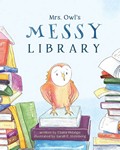

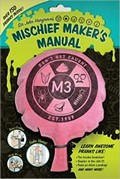




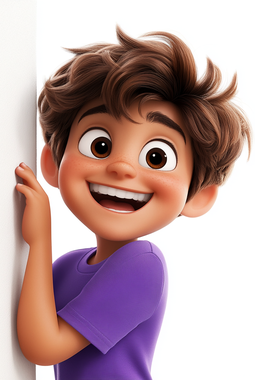
Introduction
Welcome, parents of first graders! As your child embarks on this exciting journey into the world of reading, you are a very important nurturer of the child's love for books and their literacy skills. This guide will help you navigate the wonderful world of children's literature and make the most of your child's reading experiences.
First grade is a pivotal time for young readers. It is when many children transition from learning to read to reading to learn. The books they encounter during this stage can shape their attitudes towards reading for years to come. That is why it's essential to choose engaging, age-appropriate books that spark curiosity and imagination.
In this guide, we will present the benefits of reading for first graders, give some useful tips on how to choose books for reading, recommend several great titles, and provide hints on how to maximize your child's learning in the process. Now, let's begin with how you can help your first grader become a confident and eager reader!
Benefits of Reading Books for 1st Graders
Reading opens the doors to knowledge, creativity, and personal growth. In the case of a first grader especially, the advantages of regular reading are many and significant.
-
Language Development: Regular reading exposes children to new vocabularies and sentence structures that enhances their language skills.
-
Brain Development: Books fire the imagination and thought processes, hence developing problem-solving skills and creativity in children.
-
Improved Concentration: Stories help children understand emotions and develop empathy by experiencing different perspectives.
-
Emotional Intelligence: Good reading skills are the very bedrock of success in all school subjects.
-
Bonding: Reading together creates special moments of bonding between parent and child.
-
Cultural awareness: Books introduce children to diverse cultures and experiences, broadening their worldview.
-
Stress Reduction: Reading can be a relaxing activity; it helps children unwind and deal with stress, while escaping into a story.
-
Improved Writing Skills: Well-written books automatically improve the writing capabilities of a child.
-
Lifelong Learning: The love of reading developed in first grade should underpin a lifelong commitment to personal learning and discovery.
Reading should be a key part of your first grader's daily routine, setting them up for success.
Choosing the Right Books for a 1st Grader.
Choosing appropriate books for your first grader is essential in keeping them interested and helping them in the reading development process. Here are a few guidelines to help a parent in choosing the right book.
-
Reading Level: Consider finding books that match your child's present reading ability. Those books should be challenging enough to allow them to grow but not so difficult as to be frustrating.
-
Follow their Interests: Read them books that relate to their current interests, be it animals, space, or even fairy tales. This will keep them engrossed and excited about reading.
-
Mix Fiction and Nonfiction: Expose your child to both storybooks and informational texts to give variety to his reading experience.
-
Physical Appeal: First graders are most interested in colorful pictures and an appealing layout.
-
Check for Diverse Representation: Pick books with diverse characters and cultures to expand your child's knowledge.
-
Consider Books in Series: Series books are great, as they can build a child's reading momentum and confidence based on the familiarity of characters and story structures.
-
Seek Out the Award Winners: Search for award winning books through different children's literature awards; these most often boast excellent content and illustrations.
-
Read-Aloud Potential: Choose these books because of their lyrical language, rhythm, or interactive elements.
-
Gradual Progression: Start with simple books and progress in with longer texts as the skills of your child improve.
-
Recommendations: Ask librarians, teachers, or booksellers for age-appropriate recommendations.
And remember, the very best book is one that your child wants to read over and over again!
Recommended Books for 1st Graders
From our list of top books for 6-year-olds, curated with insight and care, here are some excellent titles to consider adding to your child's reading list.

Big Truck Little Island
By Van Dusen, Chris
Description: That big truck is stuck! How will the island residents get where they re going? A tale of community and ingenuity from the celebrated Chris Van Dusen, inspired by a true story. When a big truck and its big load get stuck on a narrow road, traffic on the little island comes to a halt. Some cars need to go south and some have to travel north. How will Meg get to her swim meet? What about Barry s ballet class? Luckily, the kidscome up with an ingenious solution: why not just swap cars? Inspired by an incident that happened on Vinalhaven, Maine, Chris Van Dusen tells a fun tale of resourcefulness and community through clever, rhyming wordplay and whimsical illustrations, sprinkled with plenty of cars and trucks for transportation-loving readers.

MRS. OWL'S MESSY LIBRARY
By Hidalgo, Eliana

Why can't we be bestie-corns?
By Von Innerebner, Jessika
Description: "When a new unicorn moves in next door, Kevin is certain he's about to make a new magically awesome best friend. After all, everyone loves unicorns (especially other unicorns)! But it turns out Eric loves scary movies (eek!) and clam juice (blech!) and he doesn't like camping or skateboarding or any of the activities Kevin adores. In fact, apart from his sparkly mane and radiant horn, Eric doesn't have all that much in common with Kevin. Could it be that Eric and Kevin aren't destined to be the best of buds?"--Amazon website.

Sir John Hargrave's mischief maker's manual
By Hargrave, John
Description: A guide to pranks that provides illustrated instructions for mischief making at home, school, and camp, covering all types of pranks, including crank calls, putting real worms inside ice cubes, and baking tuna cookies.

The man who walked between the towers [kit]
By Gerstein, Mordicai
Description: Presents a lyrical evocation of Philippe Petit's 1974 tightrope walk between the World Trade Center towers. Includes two fold-out pages. One track of sound disc has page-turn signals.

Bobbo goes to school
By Hughes, Shirley
Description: "It starts out as a regular trip to the store with Mom, but then Lily does a dreadful thing: she flings her beloved stuffed toy, Bobbo, high in the air, only to have him land on top of a school bus just as it's pulling away! Lily is inconsolable. What if she never sees Bobbo again? Little does she know (though the reader can see) that Bobbo is having an exciting adventure at school--and will be well cared for until he finds his way back to Lily."--Publisher's website.

The silver donkey
By Hartnett, Sonya
Description: In France during World War I, four French children learn about honesty, loyalty, and courage from an English army deserter who tells them a series of stories related to his small, silver donkey charm.

Uniquely You!
By Canter, Randa
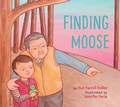
Finding moose
By Holler, Sue Farrell
Description: "Walking as 'quiet as mice and rabbits and deer' they come upon fresh moose droppings and set out to find the moose itself. They discover the branches where the moose ate breakfast, greet a chipmunk and goose, and inspect rosehips and pussy willows, but the moose is nowhere to be found. Finally, after accepting that they will have to try again next time, the boy and his grandfather head home only to be met with a big surprise." --book jacket.
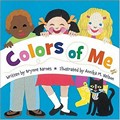
Colors of me
By Barnes, Brynne
Description: Intriguing collage illustrations frame this timeless story of a young child who questions the significance of skin color. Speaking in verse, the child wonders if the natural world believes any particular color to be more important than another. The child comes to see the importance of a world filled with and accepting of all colors.
These books of great diversity introduce children to various stories, characters, and themes that will help first graders foster a love for reading and open their minds to new ideas.
How to Maximize Your Child's Learning from Books
To underscore the benefits of reading for your first grader, try some of these following strategies.
-
Create a Reading Schedule: Devote specific time to reading every day, so that this activity becomes predictable, anticipated and thus enjoyable for a child.
-
Read Aloud Together: Even after your child has learned to read independently, read aloud to them. It develops better listening skills and comprehension.
-
Discuss the Stories: When reading books together, ask open-ended questions to help stimulate critical thinking and understanding.
-
Make Connections: Relate the stories to your child's life or to other books they have read.
-
Encourage Predictions: Sometimes, before finishing a story, encourage your child to predict what may happen. This builds anticipation and develops reasoning skills.
-
New Vocabulary: Ask them to explore new words they come across, explaining their meanings and usage in the story.
-
Story Dramatization: Using favorite books, make up plays and puppet shows that enhance comprehension and creativity.
-
Take them to the Library Often: Going to the library can be an adventure, and they can even pick out a book themselves.
-
Digitization: Complement the print books with educational reading apps and e-books.
-
Lead by Example: Let your child see you reading for pleasure, demonstrating that reading is a valuable and enjoyable activity.
-
Reading Milestones: Celebrate your child's reading achievements to build their confidence and motivation.
-
Extend the Story: Activities to extend the story line are crafts, cooking, field trips, etc., to reinforce the learning experience of the books being read.
Use these techniques, and reading time can be a complete, interactive learning experience with your first grader.
Why Choose MoBoo for Books for Your 1st Graders
When it comes to selecting the perfect books for your first grader, MoBoo stands out. Here's why.
-
Curated Selection: MoBoo carefully curates book recommendations for first graders, making sure titles are age and interest appropriate.
-
Quality Assurance: Each book on MoBoo has been screened for high quality in educational value, storytelling, and illustration.
-
Diverse Offerings: MoBoo offers a wide variety in genres and themes to suit different interests and learning styles.
-
Regular Updates: New titles are added regularly.
Choose MoBoo for opening a window to the world of literary adventure and learning right at the fingertips of your first grader!
Frequently Asked Questions
A: The best books for first graders are those that match their reading level and interests. Seek out a combination of picture books, easy readers, and beginning chapter books. Include fiction and nonfiction titles to expose your child to various types of texts. Books with colorful illustrations and simple sentence structures, together with engaging storylines or information, are perfect. Some popular genres include stories of adventure, tales of animals, fairy tales, and stories of daily experiences.
A: Make reading a positive and enjoyable activity by offering an attractive reading nook at home, allowing your child to make selections in books, and setting a good example by reading yourself. Offer your child chances for daily routine and reinforcement on reading. Relate the books to the child's life or interests. Other possible motivational activities you may want to try are reading games, technology-based e-books and celebration of reading milestones.
A: Many first graders are especially fond of:
- "Frog and Toad" by Arnold Lobel
- "Elephant and Piggie" by Mo Willems
- "Henry and Mudge" by Cynthia Rylant
- "Nate the Great" by Marjorie Weinman Sharmat
- "Magic Tree House" by Mary Pope Osborne
- "Junie B. Jones" Barbara Park
- "Fly Guy" by Tedd Arnold
These series have engaging characters, age-appropriate storylines, and progressive complexity that will support the development of reading.
A: If your child does not show interest in reading, then try the following strategies:
- Find books on subjects dear to them
- Begin with graphic novels or comic books
- Read aloud to them regularly to model reading enjoyment
- Use audiobooks with print books
- Use audiobooks with print books
- Incorporate reading into daily activities, such as reading recipes, signs, or game instructions
- Read in a different format: magazines, interactive e-books, etc.
- Try reading challenges or reward systesm
- Be patient, keep it positive and without pressure
Remember, every child develops at his or her own speed and try to make reading a positive, enjoyable experience.
A: Of course! Reading is a foundational skill that supports learning in all areas. Regular reading helps first graders to:
- Improve vocabulary and language skills
- Enhance perception skills
- Enhance critical thinking and problem-solving skills
- Boost concentration and focus
- Build background knowledge on various topics
- Improve writing skills
- Develop empathy and social-emotional skills
You are setting up your child for academic success and cultivating a lifelong love of learning; regular reading will help your first grader feel confident, self-assured, and better prepared for all challenges.



